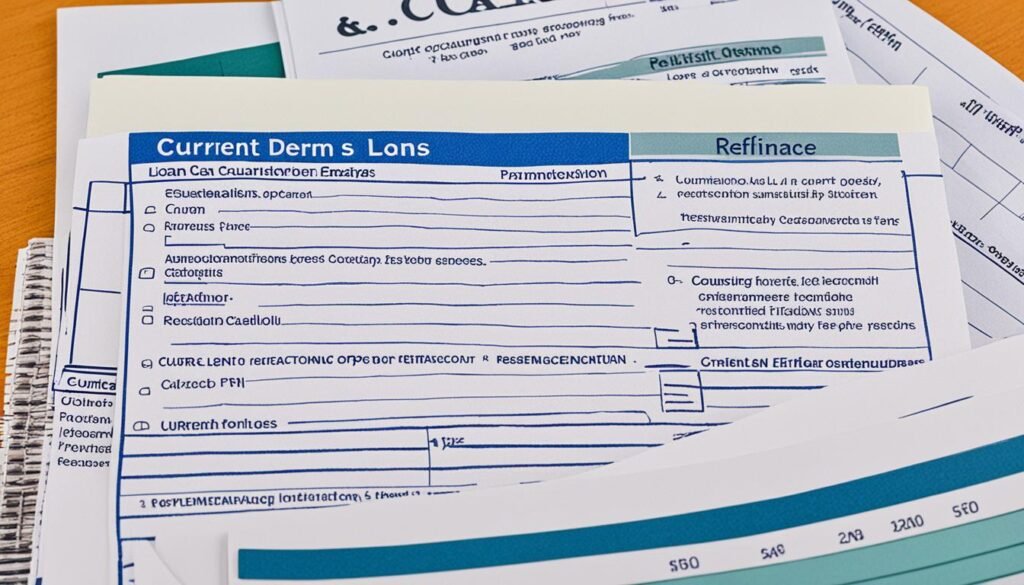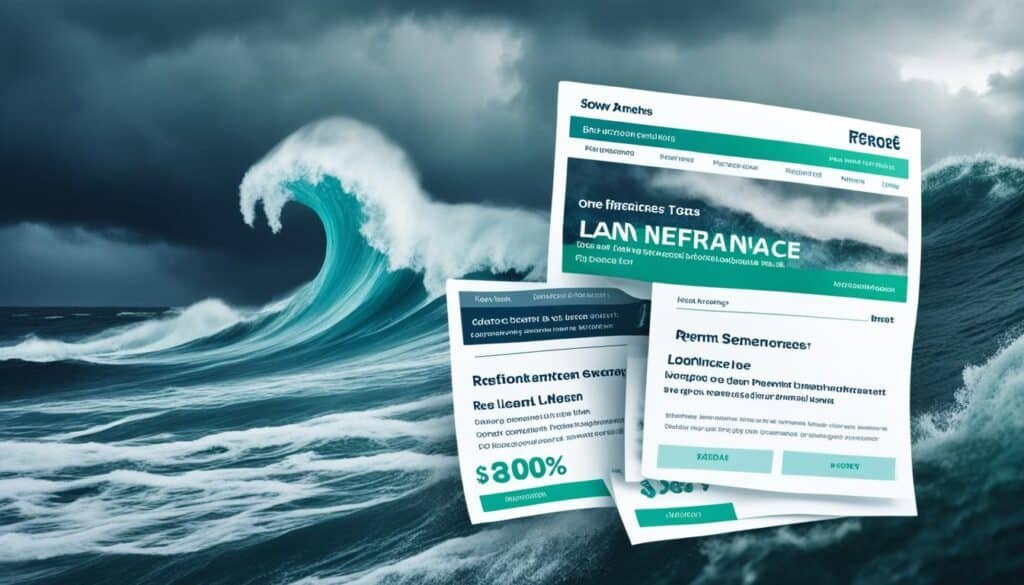Can You Refinance A Personal Loan: Refinancing a personal loan can be a smart financial move that allows you to save money and potentially lower your monthly payments. If you’re looking to refinance a personal loan, it’s important to understand the process and consider the benefits it can offer.
When you refinance a personal loan, you essentially take out a new loan to pay off your existing loan. This new loan typically comes with different terms, such as a lower interest rate, which can result in lower monthly payments and long-term savings.
Before you refinance, it’s crucial to shop around and compare offers from different lenders. This way, you can ensure you’re getting competitive rates and the best refinancing option for your specific needs.
In this article, we’ll discuss the benefits of refinancing a personal loan, when to consider refinancing, the steps involved in the process, and how it can impact your credit score. We’ll also provide tips on eligibility, the best lenders for personal loan refinancing, and how to calculate the costs and savings of refinancing.
Key Takeaways:
- Refinancing a personal loan can help save money and lower monthly payments.
- Consider refinancing if your credit score has improved or if better repayment terms and interest rates are available.
- Shop around for the best rates and compare offers from different lenders.
- Take into account the pros, such as saving on interest, and cons, such as prepayment penalties, of refinancing.
- Understand how refinancing can affect your credit score and eligibility for a new loan.
Benefits of Refinancing a Personal Loan
Refinancing a personal loan can provide numerous advantages, including the opportunity to secure a lower interest rate, resulting in lower monthly payments and long-term savings. By refinancing your loan, you can potentially save a significant amount of money over the repayment period.
One of the primary benefits of refinancing is the possibility of obtaining a lower interest rate. With a lower interest rate, you can significantly reduce the total interest charges paid over the life of the loan. This can lead to substantial savings, allowing you to keep more money in your pocket each month.
Lowering your monthly payment is another major advantage of refinancing. With a decreased interest rate, your monthly payment amount could be significantly reduced, easing the burden on your finances. This frees up extra funds that can be used for other essential expenses or savings.
Moreover, refinancing enables you to save money in the long run by shortening the repayment period. By refinancing to a loan with a shorter term, you can pay off the debt sooner and accumulate less interest overall. This accelerated repayment strategy allows you to achieve financial freedom more quickly while saving substantial amounts of money that would have otherwise been spent on interest charges.
It’s important to note that the benefits of refinancing a personal loan can vary depending on individual circumstances and the terms offered by different lenders. Therefore, it is crucial to compare multiple offers from various lenders to find the most favorable refinancing option.
“Refinancing a personal loan can help borrowers secure a lower interest rate, resulting in reduced monthly payments and long-term savings. Comparing offers from different lenders is essential to find the best refinancing option.”
When to Consider Refinancing a Personal Loan
If you’ve noticed that your credit score has improved since you initially took out your personal loan, it might be a good time to consider refinancing. Refinancing your loan can provide you with better repayment terms and potentially lower interest rates, which can help you save money in the long run.
A higher credit score indicates to lenders that you are a responsible borrower, making you eligible for better loan terms. With an improved credit score, you may be able to secure a loan with a lower interest rate, allowing you to decrease your monthly payments and potentially pay off your loan faster.
By refinancing your personal loan, you can take advantage of your improved credit score to access better repayment terms and better interest rates. This can provide you with the opportunity to save money on interest charges and free up cash for other financial goals. However, it’s important to carefully evaluate the costs and benefits of refinancing before making a decision.
Keep in mind that refinancing a personal loan is not always the best choice in every situation. It’s essential to assess your financial circumstances and consider factors such as the remaining term of your loan, any prepayment penalties, and the fees associated with refinancing. Additionally, comparing offers from different lenders can help you find the most favorable terms and rates for your specific needs.
In conclusion, if your credit score has improved and you’re looking for better repayment terms and interest rates, refinancing your personal loan may be a smart financial move. However, it’s important to carefully consider your options and weigh the potential costs and benefits before proceeding with a refinance.
Steps to Refinance a Personal Loan

Refinancing a personal loan can be a smart financial move if it aligns with your goals and improves your overall financial situation. To successfully navigate the refinancing process, follow these essential steps:
- Decide if refinancing is right for you: Before proceeding with the refinancing process, carefully evaluate your current loan terms and assess whether refinancing will benefit you in terms of lower interest rates or monthly payments.
- Choose how to refinance: There are several options for refinancing a personal loan. You can either opt for a new loan from a different lender or approach your existing lender to discuss refinancing options.
- Shop around for rates: To find the best refinancing rates available, it’s essential to compare offers from multiple lenders. Take the time to research and request quotes to ensure you secure the most competitive rates.
- Prequalify and compare offers: Prequalifying with lenders allows you to get a sense of the loan terms and rates you may qualify for. Use this opportunity to compare offers and determine the most favorable option for your needs.
- Choose a lender: Once you have compared offers and identified the lender offering the most suitable terms, make an informed decision and select the lender that best meets your requirements.
- Formally apply: It’s time to formalize your refinancing application by providing the necessary documentation and completing the lender’s application process. Be prepared to provide proof of income, employment verification, and any additional documents required by the lender.
Remember, taking the time to go through these steps can help you secure the most advantageous refinancing terms and potentially save you money in the long run.
By diligently following these steps, you can navigate the refinancing process smoothly and ensure that the decision to refinance is a sound one for your financial well-being.
Pros and Cons of Refinancing a Personal Loan

Refinancing a personal loan has its advantages and disadvantages. It’s important to carefully evaluate the pros and cons before making a decision. Here are some key points to consider:
Pros of Refinancing:
- Save on Interest: One of the main benefits of refinancing is the potential to save on interest. If you can secure a lower interest rate with the new loan, you’ll pay less in interest over the duration of the loan.
- Change Repayment Term: Refinancing gives you the opportunity to adjust the repayment term of your personal loan. You can choose a shorter term to pay off the loan faster, or a longer term to reduce monthly payments.
- Get a Larger Loan: Depending on your financial situation, refinancing may allow you to access a larger loan amount than what you currently have. This can be useful if you need additional funds for a major purchase or to consolidate other debts.
- Stabilize Interest Rate: If you have a variable interest rate on your current loan, refinancing to a fixed-rate loan can provide stability and protect you from potential interest rate increases in the future.
Cons of Refinancing:
- Prepayment Penalty: Some lenders may charge a prepayment penalty for paying off your existing loan early through refinancing. It’s important to consider this cost and weigh it against the potential savings.
- Origination Fee: When refinancing a personal loan, you may encounter origination fees charged by the new lender. These fees can add to the overall cost of refinancing and should be taken into account.
Overall, refinancing a personal loan can be a smart financial move if it aligns with your goals and helps you save money. It’s important to carefully consider the potential benefits and drawbacks, and compare offers from different lenders to find the best refinancing option for your needs.
Remember, every situation is unique, and what may be advantageous for one person may not necessarily be the best choice for another. To make an informed decision, consider your financial circumstances, goals, and the terms and conditions offered by lenders.
| Pros | Cons |
|---|---|
| Save on interest | Prepayment penalty |
| Change repayment term | Origination fee |
| Get a larger loan | |
| Stabilize interest rate |
How Refinancing Affects Your Credit Score

Refinancing a personal loan can have a significant impact on your credit score. It’s important to understand how this process can influence your creditworthiness and overall financial standing.
When you decide to refinance a personal loan, it typically involves applying for a new loan to pay off your existing one. This means that a hard inquiry will be made on your credit report by the lender. A hard inquiry is a credit check performed by a lender or creditor when you apply for credit, such as a loan or credit card. It allows the lender to assess your creditworthiness and determine if you qualify for the loan. However, multiple hard inquiries within a short period of time can temporarily lower your credit score.
Additionally, the length of your credit history may be affected when you refinance a personal loan. If you close an old loan and open a new one, it can potentially shorten the average age of your credit accounts. Length of credit history is an important factor in determining your credit score, and a longer credit history is generally viewed more favorably by lenders.
It’s important to note that the impact on your credit score from refinancing a personal loan is typically temporary. As you make timely payments on your new loan, your credit score can gradually recover and even improve over time.
“Refinancing a personal loan can result in a temporary decrease in your credit score due to the hard inquiry and potential impact on credit history length. However, with responsible financial management, your credit score can recover and potentially improve in the long run.”
Understanding Hard Inquiries
A hard inquiry, as mentioned earlier, occurs when a lender checks your credit report as part of the loan application process. Each hard inquiry can potentially lower your credit score by a few points. However, the impact is generally minimal and typically disappears within a few months.
It’s worth noting that multiple hard inquiries related to rate shopping for a specific loan, such as a mortgage or auto loan, made within a short period of time (typically within 14-45 days, depending on the credit scoring model), are often treated as a single inquiry. This allows you to compare loan offers without significantly impacting your credit score.
Impact of Refinancing on Credit Score
| Factor | Impact |
|---|---|
| Hard inquiries | Temporary decrease |
| Length of credit history | Potential shortening |
| Credit score recovery | Possible with responsible financial management |
While refinancing a personal loan may have a temporary impact on your credit score, it’s essential to weigh the potential benefits and drawbacks against your financial goals. If refinancing can help you secure a lower interest rate or more favorable loan terms, it may be worth considering despite the temporary impact on your credit score. Remember to compare offers from different lenders, assess the potential savings, and make an informed decision.
It’s important to be proactive in managing your credit health and be aware of how certain financial decisions, such as refinancing, can affect your credit score. By understanding the potential impact and taking steps to maintain responsible financial habits, you can ensure that refinancing a personal loan is a beneficial choice for your overall financial well-being.
Eligibility for Personal Loan Refinance
When considering refinancing a personal loan, it’s important to understand the eligibility requirements set by lenders. Several key factors are taken into consideration, including:
- Credit Score: Lenders assess your credit score to evaluate your creditworthiness. A higher credit score generally indicates a lower risk borrower, making you more likely to qualify for refinancing.
- Credit History: Your credit history reflects your past borrowing behavior, including how responsibly you’ve managed your debts. A positive credit history can improve your chances of getting approved for a refinance loan.
- Income: Lenders evaluate your income to determine your ability to repay the refinanced loan. A higher income can make you more eligible for favorable loan terms and rates.
- Debt-to-Income Ratio: This ratio compares your monthly debt obligations to your monthly income. A lower ratio indicates a healthier financial position and can increase your chances of qualifying for a refinanced loan.
It’s essential to note that each lender may have different eligibility criteria, so it’s important to carefully review their requirements before applying for refinancing. By understanding these factors and ensuring that you meet the necessary criteria, you can increase your chances of being eligible for a personal loan refinance.
Best Lenders for Personal Loan Refinancing

When it comes to personal loan refinancing, you have several options to choose from. It’s important to explore different lenders in order to find the best fit for your needs. Whether you prefer online lenders, traditional banks, or credit unions, each option has its own advantages and competitive rates to offer.
Online Lenders
Online lenders have become increasingly popular in recent years due to their streamlined application processes and competitive rates. They typically offer convenience and flexibility, allowing you to complete the refinancing process entirely online. Some well-known online lenders for personal loan refinancing include:
- LendingClub
- SoFi
- Upstart
Traditional Banks
Traditional banks are another viable option for personal loan refinancing. They often have established reputations and may offer additional benefits to existing customers. If you prefer a more traditional approach or have an existing relationship with a bank, consider these well-known banks for personal loan refinancing:
- Chase
- Wells Fargo
- Bank of America
Credit Unions
Credit unions are member-owned financial institutions that can offer competitive rates and personalized service. If you’re eligible to join a credit union, it can be a great option for personal loan refinancing. Some popular credit unions that provide personal loan refinancing include:
- Navy Federal Credit Union
- PenFed Credit Union
- Teachers Federal Credit Union
It’s important to compare rates, terms, and customer reviews to determine which lender is the best fit for your personal loan refinancing needs. Take the time to research and consider multiple lenders before making a final decision.
Refinancing Process and Requirements

When considering refinancing a personal loan, it’s important to understand the process and requirements involved. Here, we outline the necessary steps and documentation needed to proceed with a loan refinance.
1. Gather Documentation
Before starting the refinancing process, gather the necessary documentation. This typically includes:
- Proof of identity, such as a driver’s license or passport
- Proof of address, such as a utility bill or bank statement
- Income verification, such as pay stubs or tax returns
- Existing loan statements
Gathering these documents beforehand will streamline the application process and help lenders assess your eligibility for a loan refinance.
2. Fill Out a Loan Application
To initiate the loan refinance process, complete a loan application with the chosen lender. The application will require personal information, employment details, financial history, and other relevant information. Be prepared to provide accurate and up-to-date information to ensure a smooth application process.
3. Undergo a Credit Check
As part of the refinancing process, lenders will conduct a credit check to assess your creditworthiness. This involves reviewing your credit history, credit score, and any outstanding debts. A good credit score and clean credit history can increase your chances of qualifying for favorable loan terms and interest rates.
4. Verify Income
Lenders will also verify your income to ensure you have the financial capacity to repay the refinanced loan. This typically involves providing recent pay stubs, bank statements, and tax returns. The lender will assess your debt-to-income ratio to determine if you meet their income requirements.
5. Other Requirements
Each lender may have specific requirements for loan refinancing. These can vary based on factors such as credit score, loan amount, and desired loan terms. It’s important to review the lender’s eligibility criteria and ensure you meet all the requirements before submitting your application.
“Refinancing a personal loan involves providing necessary documentation, filling out a loan application, undergoing a credit check, and verifying income.”
Understanding the refinancing process and meeting the necessary requirements will help streamline your loan refinance application. By being prepared with the required documentation and cooperating with the lender’s requests, you can increase your chances of securing a successful loan refinance.
| Documentation | Loan Application | Credit Check | Income Verification |
|---|---|---|---|
| Gather proof of identity, address, income, and existing loan statements. | Fill out a loan application with accurate personal and financial information. | Lenders assess credit history, score, and outstanding debts. | Provide recent pay stubs, bank statements, and tax returns to verify income. |
| Smooth application process | Initiates the loan refinance process | Evaluate creditworthiness | Determine financial capacity to repay |
Impact of Refinancing on Loan Terms and Rates

When you refinance a personal loan, it can have a significant impact on the loan terms and rates. This includes adjustments to the loan term, obtaining better interest rates, and potentially lowering monthly payments. It’s essential to carefully consider these changes to ensure they align with your financial goals and provide the maximum benefit.
One of the key factors that can change with refinancing is the loan term. The loan term refers to the length of time you have to repay the loan. By refinancing, you may have the opportunity to extend or shorten the loan term based on your needs. Extending the loan term can result in lower monthly payments but may increase the total interest paid over time. On the other hand, shortening the loan term can help you save on interest but may lead to higher monthly payments.
Another significant impact of refinancing is the potential for better interest rates. When you refinance, you can explore options from different lenders and take advantage of competitive rates in the market. By securing a lower interest rate, you can potentially save money over the life of the loan. This can result in considerable savings, particularly if you have a high-interest rate on your existing loan.
Additionally, refinancing can help you lower your monthly payments. By obtaining a lower interest rate or extending the loan term, you may be able to reduce the amount you need to pay each month. This can free up more cash flow in your budget and provide greater financial flexibility. It is important to assess how the lower monthly payments fit into your overall financial plan and consider the long-term implications.
“Refinancing my personal loan allowed me to extend the repayment period and reduce my monthly payments. It was a great relief for my budget.” – Jillian Anderson
Before refinancing, it’s crucial to carefully assess your financial situation and evaluate the impact on your loan terms and rates. Consider your financial goals, assess the potential savings, and determine if the changes align with your overall objectives. By making an informed decision, you can take full advantage of the benefits that refinancing can offer.
Summary:
Refinancing a personal loan can result in changes to loan terms and rates. These changes may include adjusting the loan term, obtaining better interest rates, and potentially lowering monthly payments. It is essential to carefully consider these changes and evaluate how they align with your financial goals.
Calculating the Costs and Savings of Refinancing

When considering refinancing a personal loan, it’s important to assess the associated costs and potential savings. This involves analyzing various factors, including loan costs, interest charges, origination fees, and comparing the monthly payments of the new loan to the existing loan. By conducting a comprehensive analysis, you can determine whether refinancing is a financially advantageous decision.
“Calculating the costs and savings of refinancing allows individuals to make an informed decision regarding their personal loans. By understanding the financial implications, borrowers can determine if refinancing aligns with their goals.”
One crucial aspect to consider is loan costs, which can include application fees, appraisal fees, and closing costs. These expenses can vary depending on the lender and loan terms. It’s essential to factor in these costs to gauge the overall impact on your financial situation.
Additionally, interest charges play a significant role in assessing the financial implications of refinancing. By securing a lower interest rate through the refinancing process, borrowers can potentially save a considerable amount of money over the life of the loan.
Origination fees are another consideration when calculating the costs of refinancing. These fees, charged by the lender, are typically a percentage of the loan amount. It’s important to compare origination fees among different lenders to ensure you’re getting the most competitive rates.
Comparing the monthly payments of the new loan with the existing loan is crucial for determining potential savings. A lower monthly payment can provide immediate financial relief, allowing borrowers to allocate funds towards other financial goals or obligations.
Costs and Savings Example
To provide a concrete example, let’s consider a scenario where an individual is looking to refinance a personal loan with the following details:
| Loan Details | Existing Loan | New Loan |
|---|---|---|
| Loan Balance | $10,000 | $10,000 |
| Interest Rate | 8% | 6.5% |
| Loan Term | 5 years | 5 years |
| Monthly Payment | $202 | $192 |
In this example, refinancing the personal loan would result in a lower interest rate of 6.5% compared to the existing 8%. This reduction in interest charges translates into long-term savings throughout the loan term.
Furthermore, the monthly payment would decrease from $202 to $192, freeing up $10 each month. While this may seem like a small difference, it adds up over time and can provide financial flexibility.
By calculating the costs and potential savings of refinancing, individuals can make an informed decision and determine if it aligns with their financial goals. It’s crucial to consider all the factors involved and compare offers from different lenders to ensure the most favorable terms.
When planning your dream wedding and considering how to pay for it, explore the pros and cons of wedding loans, as they can be a flexible way to finance your special day. To qualify for the best wedding loans of 2024, check your credit score and aim for good or excellent credit to improve your chances of approval.
With various loan options from personal loan lenders, including unsecured personal loans, you can apply for a loan that suits your needs, whether it’s a fixed five-year loan or a flexible loan with varying terms. Before applying, prequalify for a loan to see if you qualify and to avoid impacting your credit score. Keep in mind that loan amounts vary, so ensure you calculate the amount needed to cover your wedding expenses, including the fee for processing your loan. Remember, a wedding loan is simply a type of personal loan that you use to cover your wedding costs, and once approved, you can pay off your loan over time.
Also Read : Income Based Loans: Affordable Financing Solutions
Conclusion
Refinancing a personal loan can be a smart financial move that can lead to significant savings and improved financial well-being. However, it is crucial to approach refinancing with careful consideration and informed decision-making.
Before refinancing, it is important to evaluate the pros and cons of the process. Consider factors such as the potential for lower interest rates, the impact on loan terms, and the cost of refinancing. By weighing these factors, you can determine if refinancing your personal loan aligns with your financial goals.
Furthermore, it is essential to meet the eligibility requirements set by lenders. This typically involves having a good credit score, a stable income, and a favorable debt-to-income ratio. By satisfying these criteria, you can increase your chances of securing the best refinancing terms and rates.
In order to make an informed decision, take the time to compare offers from different lenders. This will allow you to find the most competitive rates and terms. By diligently analyzing the details of each offer, you can ensure that refinancing your personal loan will truly benefit your financial situation.
FAQs
Q: What is a wedding loan?
A: A wedding loan is a type of personal loan specifically designed to cover wedding expenses.
Q: How can I get a wedding loan?
A: You can apply for a wedding loan through various lenders who offer personal loans for weddings. Make sure to review the loan terms and choose the best option for your situation.
Q: What is the cost of a wedding loan?
A: The cost of a wedding loan varies depending on factors such as the loan amount, interest rate, and repayment term. It’s essential to calculate the total cost of the loan before taking it out.
Q: Can I use a personal loan to pay for my wedding?
A: Yes, you can use a personal loan to finance your wedding. Personal loans offer flexibility in how you use the funds, including covering wedding expenses.
Q: How does taking out a wedding loan impact my credit score?
A: Taking out a wedding loan results in a hard credit inquiry, which might temporarily lower your credit score. However, making timely payments on the loan can also improve your credit score over time.
Q: What are the pros and cons of using a personal loan for a wedding?
A: The pros include immediate access to funds, flexibility in spending, and fixed repayment terms. The cons may involve interest costs and potential impact on your credit score.
Q: What are the loan options available for weddings?
A: There are various loan options for weddings, including unsecured personal loans, wedding-specific loans, and secured loans. Explore different lenders to find the best loan for your wedding needs.
Q: What are the qualifications for obtaining a wedding loan?
A: Qualifications for a wedding loan may include a good credit score, stable income, and meeting the lender’s specific requirements. Each lender has its own criteria for loan approval.





